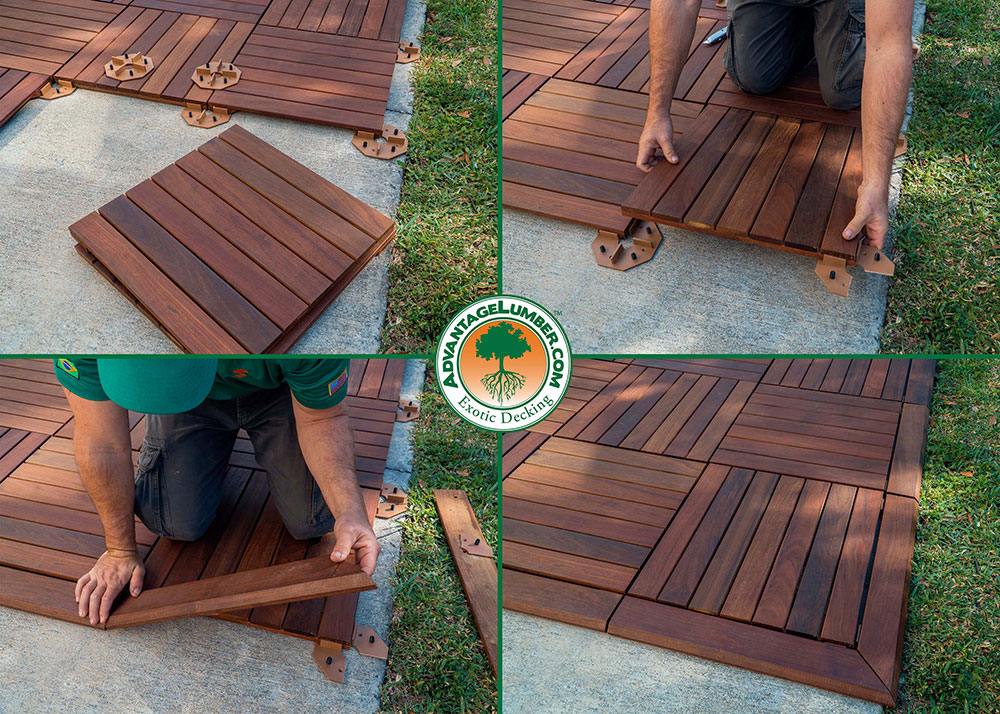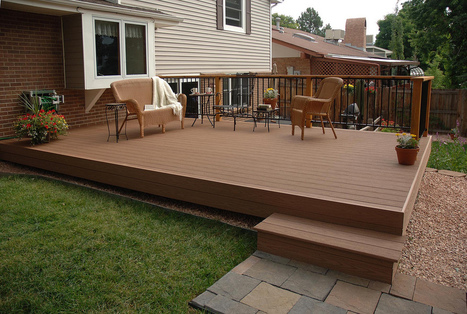Choosing the right materials is important when preparing for your deck installation project.
Choosing the right materials is important when preparing for your deck installation project.
Blog Article
Just how to Choose the Right Materials for Your Deck Installation Job
Choosing the suitable materials for your deck installment job can appear overwhelming. The trick is to balance your budget, layout choices, and way of life needs to develop a deck that will boost your exterior space for years to come.
Comprehending the Different Kinds Of Deck Products
When embarking on a deck setup task, the choice of products becomes a pivotal choice. Compound products, on the various other hand, are a blend of timber and plastic, providing durability and resistance to weather elements. By comprehending these distinctions, homeowners can make an extra informed decision on the most suitable deck product for their certain requirements.
Examining the Durability and Maintenance Requirements of Deck Materials
Analyzing the toughness and maintenance requirements of deck materials is a crucial step in deck setup. Toughness involves the product's capability to withstand severe climate problems, wear and tear, and its durability.
Understanding maintenance requirements is similarly important. Some products need regular securing or discoloring to maintain their appearance and resist dampness damages, while others, like composite decking, require less upkeep. By reviewing these factors, one can pick the most appropriate outdoor decking product, guaranteeing a balance in between resilience, maintenance needs, and aesthetic charm.
Price Evaluation: Comparing Wood and Compound Decking
Although expense may originally appear like a second issue, it is a significant element when contrasting timber and composite outdoor decking. Timber, usually a more economical choice, has a reduced ahead of time expense. Over time, maintenance expenditures can accumulate, possibly making wood more expensive in the long run. These upkeep costs may consist of discoloration, sealing, or changing damaged boards. On the various other hand, composite outdoor decking, while more expensive originally, requires much less maintenance, potentially reducing long-term expenses. Yet, it's important to keep in mind that composite outdoor decking isn't unsusceptible deterioration, and replacement costs can be high. Potential deck owners have to consider their budget and desire to maintain their decks when choosing between timber and composite outdoor decking.
Appearances and Design Versatility of Decking Products
While price is a vital factor to consider, the aesthetic appeal and style versatility of outdoor decking products likewise play a considerable role in the decision-making procedure. Various materials provide differing degrees of visual appeal. Natural wood outdoor decking supplies a classic, classic appearance, while composite materials supply a broad array of colors and appearances to suit diverse preferences and styles. Style versatility refers to the ability to shape and manipulate the outdoor decking product to meet details layout requirements. Timber, for example, uses high layout versatility as a result of its ease of reducing and forming. Composite materials, while less adaptable in design, are still versatile sufficient for many deck styles. These variables, for that reason, are crucial factors in the selection of decking material.
Ecological Influence of Decking Products
When picking outdoor decking products, one need to think about not just aesthetic appeals and sturdiness, but also the ecological effect. It is essential to evaluate the sustainability of materials and explore recycled decking alternatives. In addition, recognizing the potential influence on neighborhood ecological communities will certainly make sure a more environmentally responsible choice.
Evaluating Product Sustainability
In the world of deck building, evaluating product sustainability is a crucial action. This involves assessing the environmental influence of each prospective material, taking into consideration elements such as the power needed for its production, its carbon impact, and its end-of-life disposal or recycling choices. Wood is a renewable source, but unsustainable logging practices can lead to logging. Composite outdoor decking products often integrate timber and plastic, decreasing the need for new hardwood yet increasing reliance on fossil gas. Aluminum and other steels might be much more sturdy and recyclable, but their removal and handling can be energy-intensive. Hence, the choice of outdoor decking products should balance performance, aesthetic appeals, expense, and sustainability to make certain a responsible and long-lasting setup.
Recycled Outdoor Decking Alternatives

Compound outdoor decking is especially preferred Source due to its longevity and simplicity of maintenance. Recycled plastic decking, on the other hand, is very durable and calls for marginal maintenance.

Effect On Local Communities
While the advantages of using recycled products for outdoor decking can not be overemphasized, it's similarly crucial to take into consideration the more comprehensive environmental ramifications of these choices. Correct disposal of old outdoor decking is important to decreasing land fill waste. Basically, an eco-conscious deck job demands careful product option, sustainable sourcing, and accountable disposal.
Making Your Final Choice: Tips for Choosing the most effective Deck Products
As the post shifts into the subtopic of "Making Your Final Choice: Tips for Choosing the very best Deck Products", it is vital to comprehend the variety of deck products offered. Striking a balance in between longevity and looks is vital in this selection procedure. The complying with discussion will certainly direct viewers in making an educated selection based upon these essential factors to consider.
Comprehending Different Deck Products
The task of selecting the appropriate materials for your deck setup can appear intimidating due to the huge variety of choices available. Plastic or PVC decks are also more durable and require less maintenance than official source composite products, however they can look less natural. Light weight aluminum decks are solid, lightweight, and immune to rot, but they are also the most costly choice.
Toughness vs. Aesthetics Equilibrium
Stabilizing longevity with appearances can be a challenge reference when picking deck products. The decision typically comes down to individual choices and the deck's planned use. High-traffic areas might necessitate durable products like composite decking, which stands up to deterioration but might lack the all-natural appeal of wood. On the various other hand, timber uses a timeless allure and warmth that artificial products battle to duplicate. It needs more upkeep and may not last as long. Homeowners require to strike an equilibrium, considering both the deck's functional demands and their aesthetic choices. By doing so, they can ensure their deck continues to be a practical and eye-catching outdoor area for years to find.
Conclusion
Finally, choosing the right materials for your deck installment task needs careful consideration of elements such as sturdiness, maintenance, price, aesthetic appeals, and ecological effect. Whether you opt for typical timber or composite materials, your option ought to align with your budget, layout choices, and way of life. Inevitably, the finest decking material is one that improves your outside room and supplies pleasure for years ahead.
Report this page